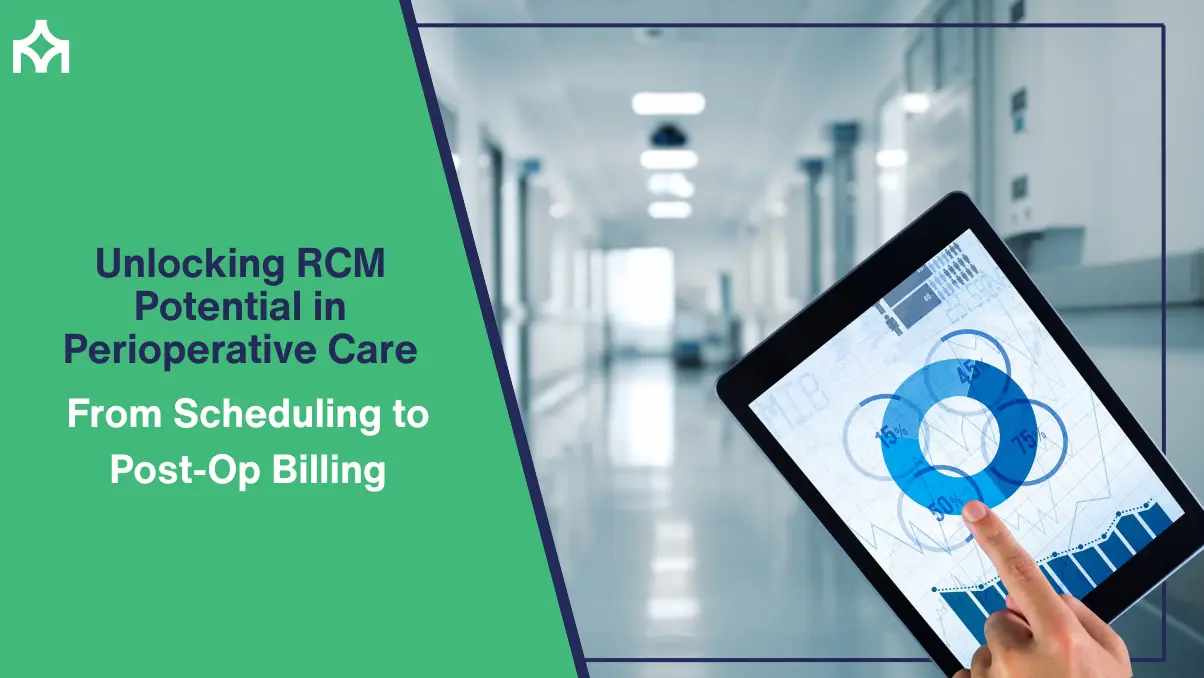Perioperative care, the period encompassing pre-surgery, surgery, and post-surgery recovery, is one of the most intricate and revenue-intensive components of hospital operations. Effective Revenue Cycle Management in this area is no longer a back-office concern; it’s a frontline strategy for financial health, operational efficiency, and patient satisfaction.
From surgical scheduling to post-op billing, perioperative RCM transformations are reshaping how healthcare organizations capture revenue, reduce denials, and deliver high-quality care. With surgical services accounting for up to 40% of a hospital’s revenue, the stakes couldn’t be higher. Yet, many organizations still grapple with inefficiencies, data silos, and administrative complexity.
The Hidden Challenges in Perioperative RCM
Perioperative revenue cycles are high-stakes ecosystems, where even minor breakdowns can trigger substantial financial and clinical consequences. Some common pressure points include:
- Scheduling complexity: Coordinating ORs, surgeons, pre-op testing, and insurance approvals.
- Authorization delays: Missing pre-approvals lead to reimbursement denials.
- Coding intricacies: Surgical and anesthesia codes are highly specialized; even minor errors can lead to claim rejections.
- Post-op billing: Monitoring global surgical packages, post-discharge visits, and complications is a labor-intensive and error-prone process.
Studies show that 15–20% of surgical claims are denied on first submission, resulting in lost revenue, resubmissions, and staff burnout.
How Modern RCM Is Transforming Perioperative Care
To overcome these challenges, forward-thinking hospitals are turning to automation, predictive analytics, and integrated platforms. Here's how the new era of perioperative RCM is taking shape:
- Intelligent Scheduling & Pre-Authorization:
AI-powered scheduling systems now integrate directly with payer databases, ensuring that pre-authorizations are verified before surgeries are booked. These tools have been shown to reduce idle OR time by 20–30% and boost patient throughput.
- Real-Time Insurance Verification:
Automated insurance verification at registration minimizes claim rejections due to eligibility issues. Clinics using these tools have reported up to 50% fewer denials from missing or incorrect insurance details.
- Automated Surgical Coding:
Surgical billing requires precise documentation of procedures and bundled codes. Deploying AI-assisted coding solutions or specialized RCM teams reduces denial rates by 30% or more, while speeding up claims processing from 60 to just 30 days.
- Postoperative Billing Optimization:
Timely documentation of post-op visits is essential for compliance and revenue. Integrated billing workflows trigger alerts for billable post-op care, improving revenue capture without increasing compliance risks.
- Predictive Analytics & Denial Management:
In order to proactively detect and address denial concerns, providers can apply AI-driven analytics to claim patterns. Cash flow has significantly improved for organisations that use denial management dashboards, as rejection rates have decreased from 15% to less than 5%.
Why Perioperative RCM Is a Strategic Advantage
Surgical suites are among the most expensive assets in a hospital, and their profitability hinges on efficient RCM. Consider these reported outcomes:
- Hospitals leveraging advanced perioperative RCM increased bed utilization by 18%.
- Automated post-op billing processes reduced administrative costs and freed up clinician time for direct patient care.
- Organizations with end-to-end perioperative RCM strategies saw up to 15% operational cost savings.
The Future
Unlocking the full value of perioperative RCM demands a holistic, tech-enabled approach, one that spans the entire surgical journey, from scheduling and eligibility checks to claims management and denial resolution.
Hospitals that get it right can:
- Minimize surgical claim denials and billing delays
- Maximize OR capacity and profitability
- Capture revenue for all procedures and follow-up care
- Enhance compliance and financial predictability
In an era where margins are shrinking and accountability is rising, perioperative RCM is a strategic differentiator for hospitals seeking long-term sustainability.

